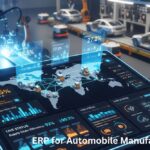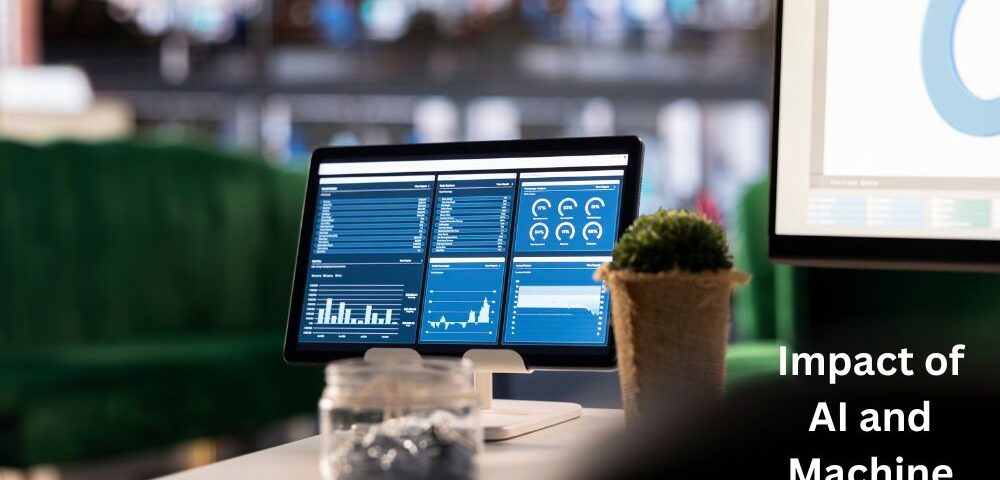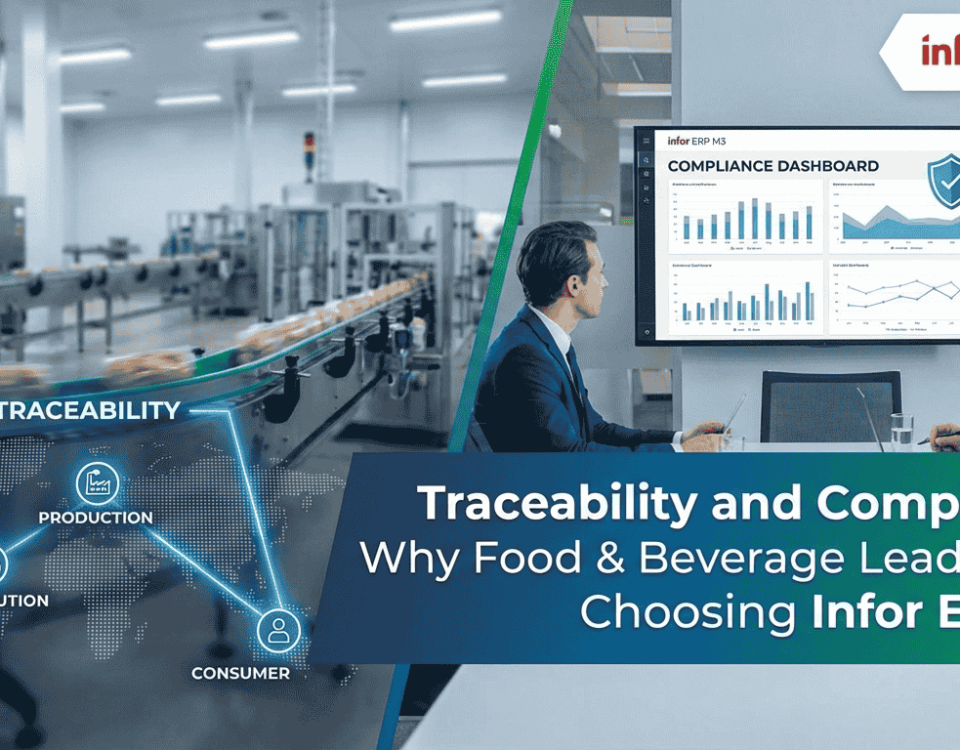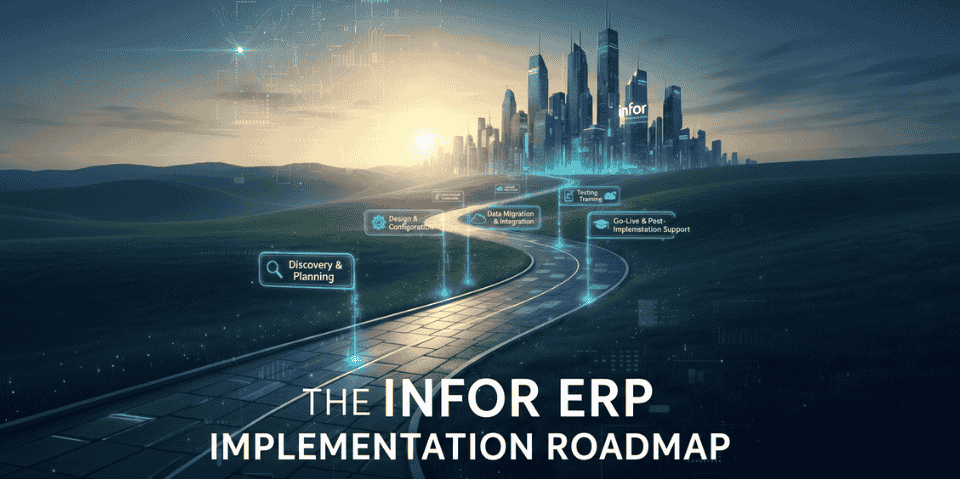
How Singaporean Logistics Companies Use ERP to Optimize Port & Maritime Operations
June 30, 2025
How ERP Helps Automotive Manufacturers Handle Just-In-Time (JIT) Production
August 4, 2025Impact of AI and Machine Learning on ERP Systems
Introduction: Emerging Technologies Reshaping ERP
As the digital world evolves, AI (Artificial Intelligence) and ML (Machine Learning) are reshaping the way businesses operate. These technologies are no longer optional—they are now integral to how modern organizations gain insights, make decisions, and improve efficiency.Today, the impact of AI on ERP systems is transformative. ERP solutions are moving beyond traditional transaction-based functions to become smart, predictive, and autonomous platforms that enhance every business process.
The business world is rapidly evolving, and AI in ERP systems is at the center of this transformation. As organizations embrace artificial intelligence in ERP, they unlock smarter, faster, and more predictive business operations. From automation to advanced analytics, AI and machine learning are reshaping ERP software into an intelligent business core.
How AI and Machine Learning Improve ERP Systems

Artificial intelligence in ERP refers to the integration of AI and machine learning technologies within enterprise resource planning systems. This allows ERP platforms to go beyond transaction tracking and act as intelligent tools that predict trends, automate processes, and provide actionable insights.
Unlike traditional ERP, AI-enhanced systems learn from data patterns, adapt over time, and make decisions that once required human intervention.
What Machine Learning Brings to ERP
- Pattern Recognition: ML in ERP software identifies trends in large datasets to make future predictions.
- Autonomous Decisions: ERP systems using artificial intelligence for automation can act on data without human intervention.
- Visual Analytics: AI transforms raw data into easy-to-understand dashboards for faster decisions.
Introduction of emerging technologies: AI (Artificial Intelligence) and ML (Machine Learning)
Evaluation of businesses world is ongoing rapidly. Recently, AI and ML are revolutionizing technologies. How businesses function, rendering their systems smart, efficient, and take insightful decisions are advanced capabilities which are gradually configuring. As a result, the impact of AI on ERP systems is becoming increasingly significant.
AI and ML are revolutionizing ERP systems by making them smarter, predictive, and more efficient
ERP systems, traditionally the foundation of business functions, are undergoing a significant revolution with the integration of AI in ERP system. This integration is allowing ERP solutions to transcend their conventional role of merely documenting transactions. They are now becoming proactive, predictive, and highly efficient engines that drive business growth and agility. The benefits of integrating AI with ERP platforms are already visible in leading global enterprises.How AI & ML complement ERP systems?
Machine learning in ERP software allows systems to extract insights from large volumes of historical and live data. It identifies patterns and makes predictions without explicit programming. This complements ERP by improving data analytics, automating complex tasks, and providing actionable visualizations. It showcases how AI and machine learning improve ERP systems holistically.Key Areas Where AI & ML Are Transforming ERP Systems
The impact of AI and Machine learning in ERP software is obvious across numerous functions. AI and ML are dramatically improving:
- Predictive Analytics: Future-based demand, identifying potential supply network disruptions, and forecasting equipment failures with remarkable precision.
- Automation of Routine Tasks: Artificial intelligence in ERP helps to automate and streamline processes such as invoice processing, data entry, and financial reconciliations. This significantly reduces manual effort and errors.
- Enhanced Decision-Making: From inventory management to adaptive way strategizing and provider risk analysis.
- Optimized Supply Chain Management: From stock refinement to dynamic route plotting and supplier risk appraisal.
- Personalized User Experiences: Immediate help through chatbot and virtual assistant technique embedded in ERP macro interactions.
- Improved Financial Operations: Automated settlements are done automatically, and fraud identification, and budget prediction are optimized.
Challenges of Implementing AI in ERP Systems
While the advantages of integrating AI with ERP platforms are undeniable, allowing these advanced technologies comes with its own set of obstacles of implementing AI in ERP systems. These come:
- Data Quality and Governance: AI/ML models rely heavily on clean, proper, and consistent data. Low data quality can lead to flawed visuals.
- High Initial Costs: Investment in advanced technology and real talent is frequently necessary.
- Integration with Legacy Systems: Integrating new AI function qualities with existing and outdated ERP can be hard.
- Change Management and User Adoption: Employees need to learn to new workstyle and believe in AI-driven visuals. It requires the best training.
- Cybersecurity Concerns: Protecting sensitive data handled by AI-powered ERP systems is most important.
The Future of ERP with AI and Machine Learning
With the introduction of AI and machine learning, ERP is ticking one more gear of transformation. We can expect more autonomous and self-learning ERP systems that keep optimizing operations, project market shifts, and personalize experiences in ways previously unknown.Infor ERP Software: Leading the Way in AI-Driven ERP
Leading providers like Infor ERP software are at the forefront of integrating AI and machine learning into enterprise systems. Infor's cloud-based ERP solutions use embedded AI to deliver predictive analytics, automate business workflows, and optimize decision-making across finance, manufacturing, and supply chain operations. Companies adopting Infor ERP software benefit from a smarter, more agile system that evolves with their business needs—demonstrating the real-world impact of AI on ERP systems.
This evolution has transformed AI and machine-learning-powered ERP systems from "How to Do" processing towards hyper and other predictive, and prescriptive analytics. This fits into new-age technologies like IoT, blockchain, etc. Thus it makes ERP to become more than just a record or an expert system.
The Future of ERP with Artificial Intelligence and Machine Learning
The future of ERP lies in hyper-automation, predictive insights, and self-learning systems. With AI, ERP is evolving from a static tool into a proactive platform that predicts market changes, recommends actions, and learns continuously. Key Trends Ahead:- Self-optimizing ERPs that adapt in real-time
- Integration with IoT and blockchain for end-to-end visibility
- Voice-assisted ERP for hands-free interactions
How Coserve Helps You Integrate AI into ERP
As a trusted Infor partner, Coserve Solutions helps businesses deploy AI-powered ERP solutions tailored to logistics, supply chain, and manufacturing. We specialize in:- Custom AI integration with Infor ERP
- Workflow automation using ML algorithms
- Dashboards that provide predictive and prescriptive analytics
- Legacy system modernization with advanced AI tools
Conclusion: ERP + AI = The Future of Smart Business
The future of ERP with artificial intelligence and machine learning is not years away—it’s happening now. By integrating these technologies, ERP systems become more than just business tools. They become strategic assets that power agility, automation, and accuracy across the entire enterprise.If you’re looking to modernize your ERP with cutting-edge AI and ML capabilities, Coserve is here to help.



